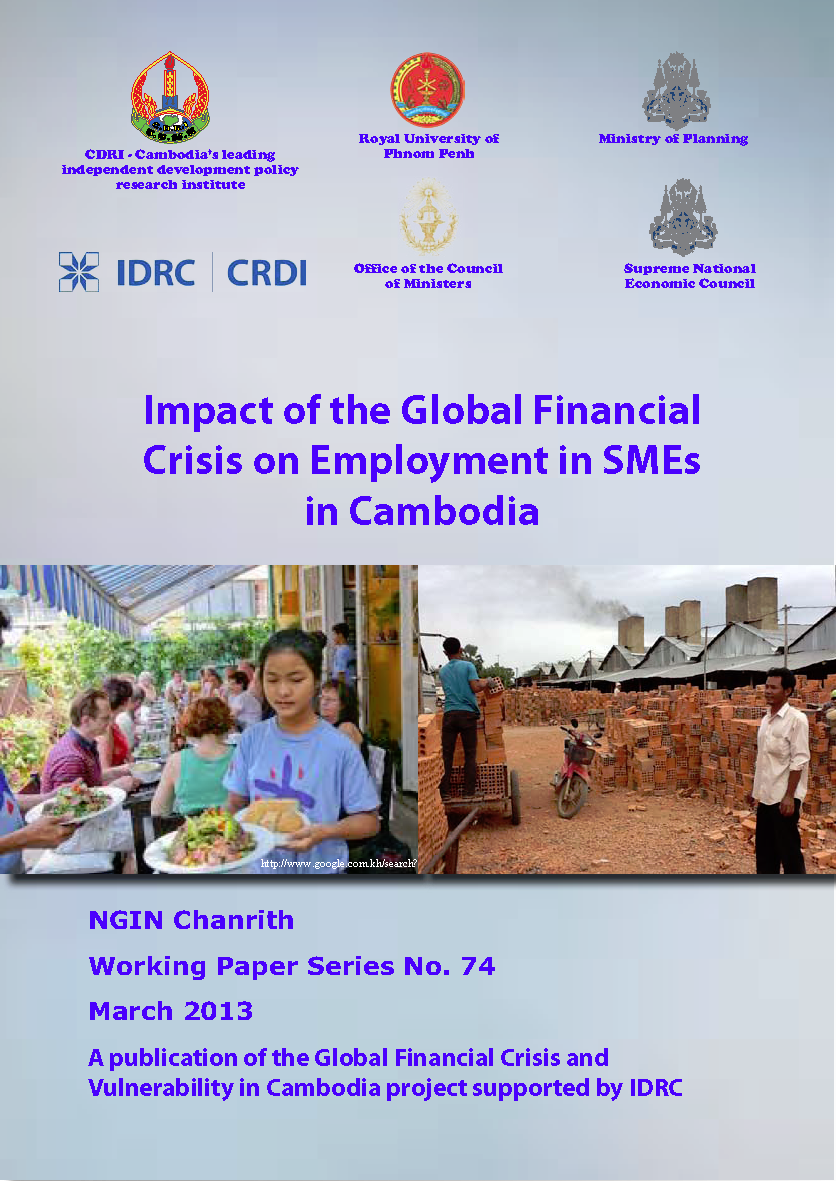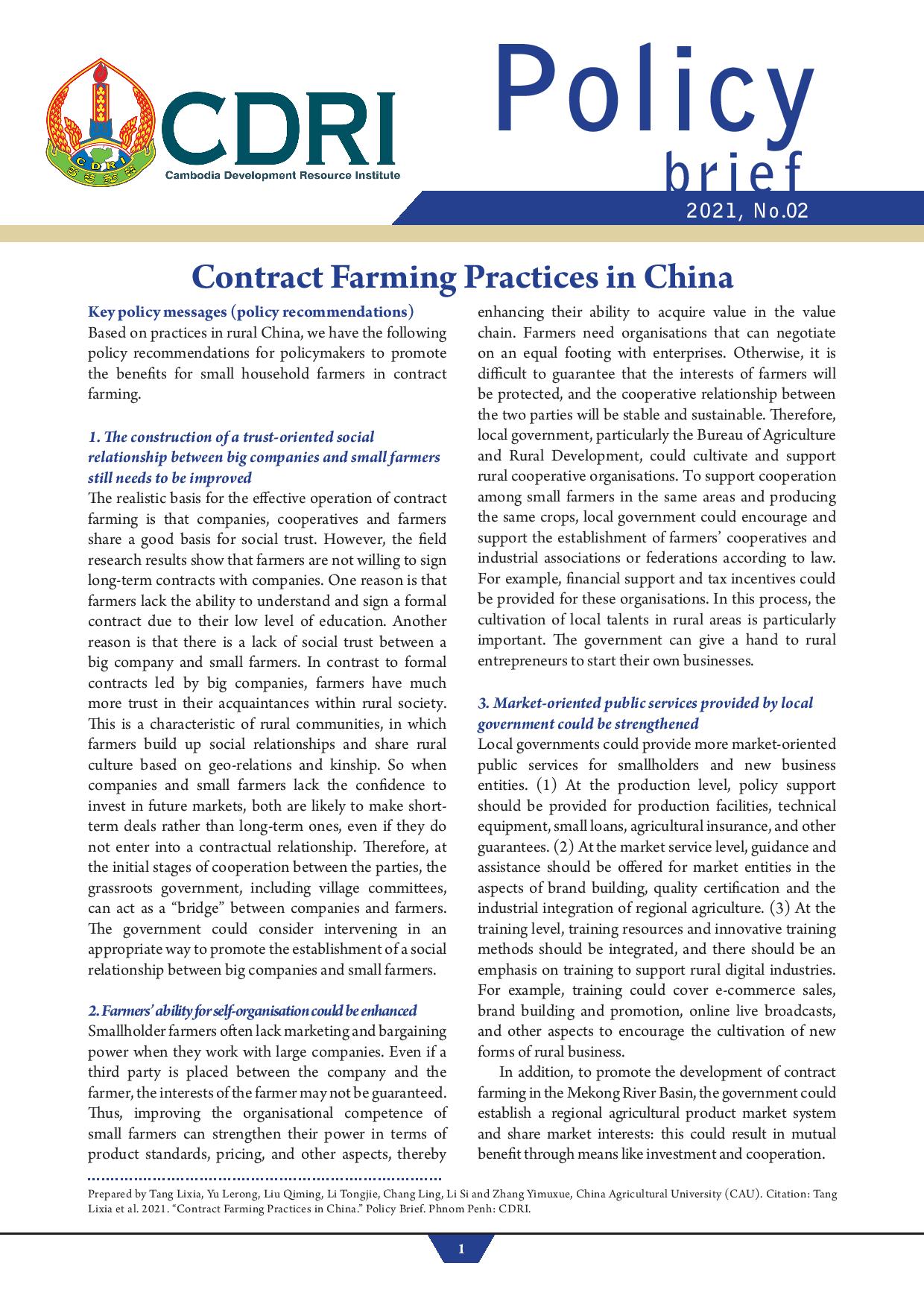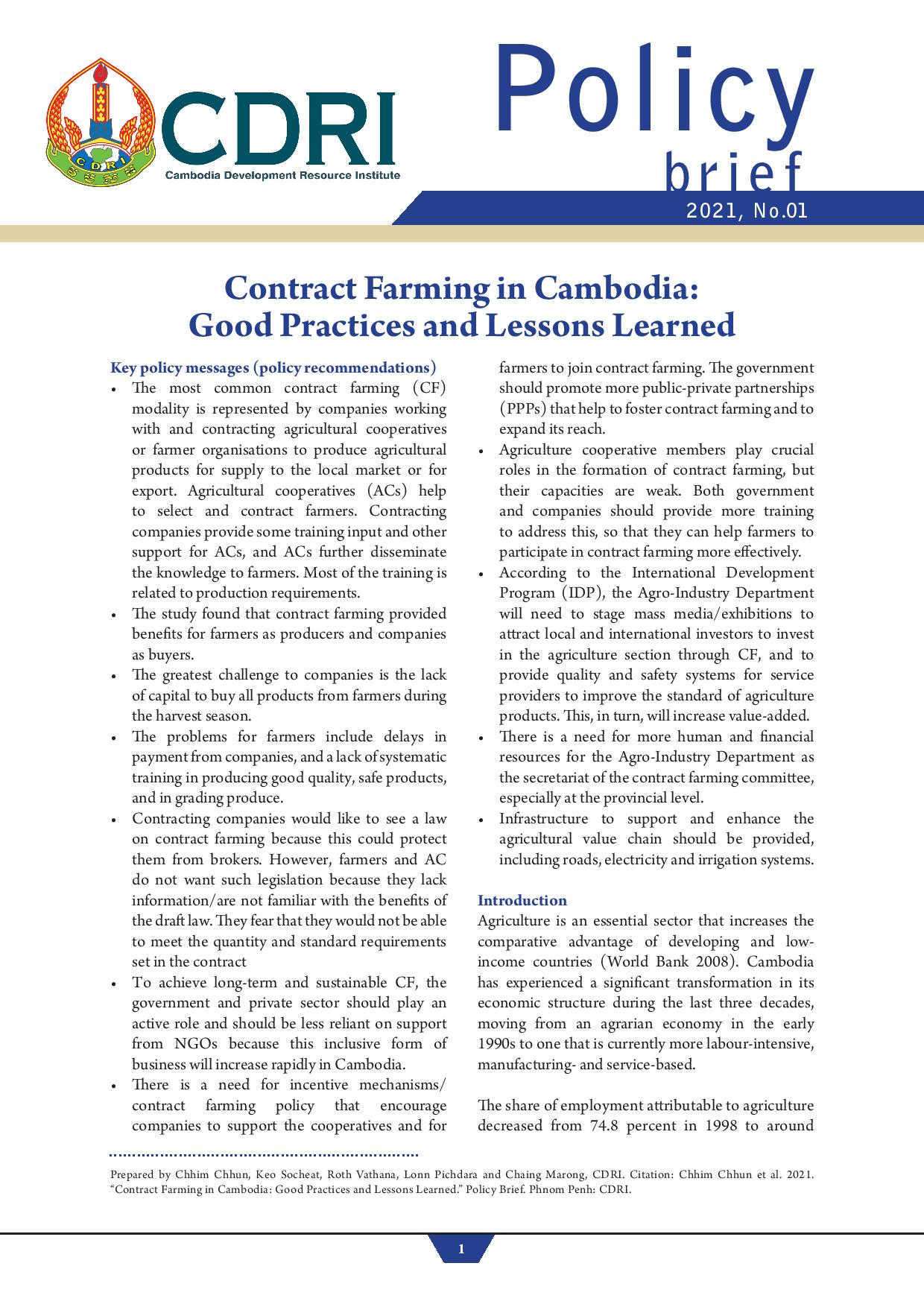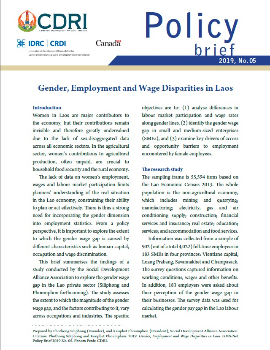
Impact of the Global Financial Crisis on Employment in SMEs in Cambodia
Keyword: SMEs employment impact, global financial crisis, construction and tourism sectors, gender wage gap, business coping strategies
Abstract/Summary
This chapter assesses how the global economic and financial crisis has affected employment in small- and medium-sized enterprises (SMEs) in the construction and tourism sectors in Phnom Penh municipality and Siem Reap province. Key areas of analysis are SMEs’ business performance, fixed assets value, and employment, and support received to cope with the crisis. The methodology involved a survey of 120 SMEs, 60 from each of the two sectors. The global crisis affected the business performance and fixed assets value of SMEs in the construction and tourism sectors as they encountered lower revenues and higher expenses. The fixed assets value of enterprises in the construction industry decreased, mirroring the bust of the property sector in the wake of the crisis. Consequent impacts on employment are analysed through the number of paid and unpaid employees, the educational level of paid employees, and employees’ compensation. The number of unpaid family workers in tourism SMEs went down and the number of paid employees declined across the two industries. A common pattern emerging from both industries was that the number of paid employees with high education decreased after the slump, and the number of female paid employees with high education was lower than that of their male counterparts regardless of the upheaval. With regard to employees’ compensation, there was no significant change in either sector. However, the wages of female workers were lower than the wages of male workers before and after the crisis. This suggests a compensation gap between male and female employees in the two industries irrespective of the downturn. In the tourism sector, there was also a minimal increase in employers’ contribution to the social security/pension fund. The SMEs applied cost-saving strategies (cutting staff, expenses and outgoings on utilities) to cope with the difficulties. Very few enterprises received assistance to revitalise their business, and the aid was informal (i. e. , money loaned by friends and relatives) and nominal. Furthermore, a limited number of enterprises sought business support services, mostly from specialised private firms. These findings illustrate the common problems (limited access to finance and inadequate support system) being faced by Cambodian SMEs. The enterprises needed to boost functional capacities, competitiveness and information in order to augment their business performance.



